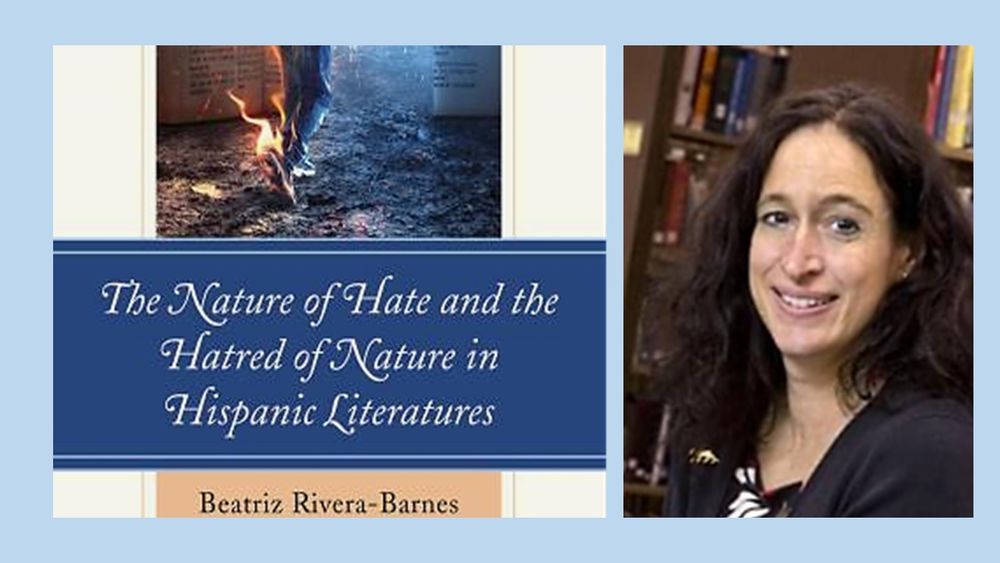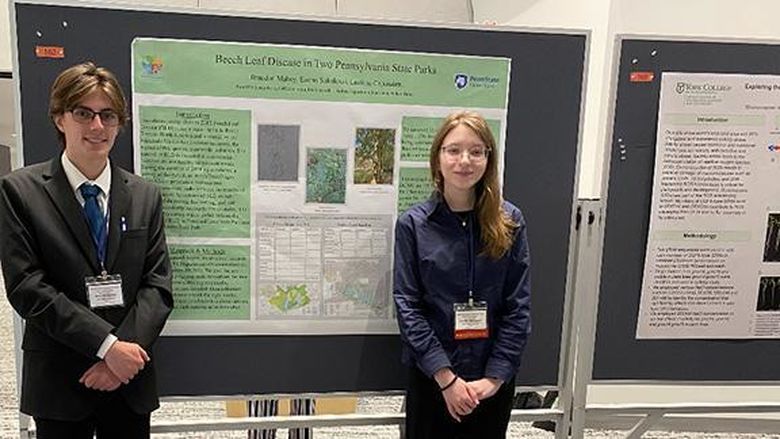
Inspired by a continuity of hatred in Hispanic literatures across the ages, Penn State Scranton Associate Professor of Spanish Beatriz Rivera-Barnes wrote “The Nature of Hate and the Hatred of Nature in Hispanic Literatures,” which was published last year and now being used in universities across the United States, as well as in South Korea, Spain and Germany.
DUNMORE, Pa. -- Inspired by a “continuity of hatred in Hispanic literatures from medieval Spanish literature to modern times,” Penn State Scranton Associate Professor of Spanish Beatriz Rivera-Barnes decided to explore the issue further. The result was a book that came out at the end of last year and is currently being used around the world to study this very issue.
“The Nature of Hate and the Hatred of Nature in Hispanic Literatures” was published last year by Lexington Books and is now being used in several universities across the United States, as well as in South Korea, Spain and Germany, Rivera-Barnes said.
The book retraces the “nature of hatred” and the “hatred of nature” from the earliest traditions of Western literature including Biblical texts, Medieval Spanish literature and early Spanish Renaissance texts, to 19th- and 20th-century Iberian and Latin American literatures.
The nature of hate is neither hate in its weakened form, as in disliking or loving less, nor hate in its righteous form, as in “I hate hatred,” rather hate in its primal form as told and conveyed in so many culturally influential Bible stories that are at the root of hatred as it manifests itself today, according to the publisher’s description.
The hatred of nature is not only contempt for the natural world, but also the idea of nature hating in return, thus inspiring even more hatred of nature. While some chapters, such as the one dedicated to La Celestina, focus more on the nature of hate and the hatred of love, they do address the hatred of nature, as when Celestina conjures Pluto, who happens to be closer to nature than to Satan. Other chapters, such as the ones dedicated to the Latin American novels set in the jungle, focus more on the hatred of nature but ultimately turn to the nature of hatred by analyzing hatred and the descent into madness.
The book’s final chapters simultaneously address the nature of hatred and the hatred of nature as well as the ecophilia/ecophobia debate in 20th-century Latin American literatures and considers, if not an assimilation of hate, possibly the cannibalizing of hate.
Rivera-Barnes said the book took five years to write and is the second nonfiction/academic book she has written. In 2009, she co-authored “Reading and Writing the Latin American Landscape,” which was published by Palgrave Macmillan to much critical acclaim. She is currently working on another academic work, “New Horizons in Hispanic Ecocriticism.”
A faculty member at Penn State Scranton for the past 18 years, she has also written several works of fiction, including: “When A Tree Falls” (2010); “Do Not Pass Go” (2006); “Playing with Light” (2000); “Midnight Sandwiches at the Mariposa Express” (1997); and “African Passions and Other Stories” (1995).
Rivera-Barnes earned her doctorate from the City University of New York Graduate Center. Her dissertation was titled: "Challenging the Canon: A History of Latina Literature Anthologies, 1980-2000." She holds a pre-doctoral degree from the Universite' de Paris III - Sorbonne Nouvelle, and a masters degree in philosophy, teaching license and bachelor's degree from the University de Paris IV - Sorbonne.





